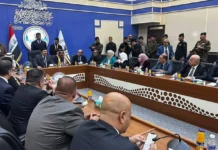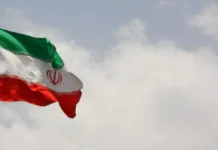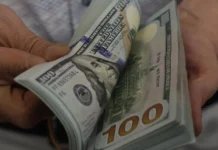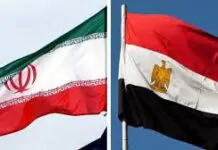Government Advisor: Partnerships With International Finance Reflect Confidence In The Iraqi Investment Environment.
Money and Business The Prime Minister’s Advisor for Financial Affairs, Mazhar Mohammed Salih, affirmed on Saturday that the partnerships signed with the International Finance Corporation (IFC) represent a strategic step towards diversifying the Iraqi economy and enhancing international direct investment. He pointed out that these partnerships reflect the international corporation’s confidence in the Iraqi investment environment and open new horizons for the development of non-oil sectors.
Salih said: “The conference held today in Baghdad under the title of Partnership Day between the International Finance Corporation (IFC) and the Iraqi government, in the presence of Prime Minister Mohammed Shia al-Sudani, is an important strategic step towards diversifying the Iraqi economy and enhancing international direct investment.”
He added that “the International Finance Corporation, one of the arms of the World Bank Group concerned with financing and partnerships with the private sector in various countries around the world, including Iraq, demonstrated through this conference clear confidence in the Iraqi investment environment, which constitutes a positive indicator for international investors.”
He explained that “the link between the activities of the international corporation and the Iraqi private sector represents a qualitative shift in the government’s economic policy and enhances the openness of national investments to global financial institutions, which contributes to diversifying the economy’s resources and providing it with expertise and partnerships with the most important international economic centers.”
Saleh continued, “The conference witnessed the signing of multi-million dollar partnership contracts in various sectors that will contribute to job creation, infrastructure improvement, and increased local production.”
He pointed out that “these partnerships are expected to generate direct financial returns from the non-oil sector through seven important investment contracts, including projects in gas, renewable energy, and agriculture.”
He explained that “the international institution does not only provide financing, but also brings with it management and implementation expertise and international standards, raising the level of projects in Iraq to a world-class level.
” He pointed out that “this approach will enhance growth in the industrial, services, transportation, communications, and port sectors, and provide additional resources from taxes, customs duties, and utility operating revenues, thus contributing to diversifying sources of revenue away from oil monopoly.”
Under the patronage and attendance of Prime Minister Mohammed Shia Al-Sudani, the International Finance Corporation (IFC)-Iraq Partnership Day celebration was held in the capital, Baghdad, coinciding with the 20th anniversary of the Corporation’s presence and partnerships with Iraqi sectors.
The celebration witnessed the signing of seven important investment contracts, most notably:
– A $500 million contract to invest in associated gas and develop Umm Qasr Port facilities with Basra Gas Company.
– A $250 million contract to finance and expand cement and lubricating oil production with Al-Muhaidib Group.
– A $125 million contract to finance container handling equipment and a storage yard at Umm Qasr Port with Allurain Investment Company.
– A $65 million contract to finance the first phase of the green residential real estate development project in Sulaymaniyah with Hiwa Rauf Investment Company.
– A $10 million contract to finance a line of credit to finance international trade with the Bank of Baghdad.
– An investment partnership contract to establish sustainable agricultural and industrial projects with Sama Al-Manar/Tiriyaki Agro Company, worth $120 million.
A partnership agreement was signed with Captain Ship Holdings to establish a teaching hospital, valued at $250 million, in addition to a partnership agreement with Al-Ula Company for Financing Small and Medium Enterprises in the field of consulting services and developing investment attraction. https://economy-news.net/content.php?id=59986
Iraq Ranks Second Among Arab Countries As The Largest Exporter Of Oil To The United States
Saturday, September 13, 2025, | Economic Number of reads: 301 Baghdad / NINA / The US Energy Information Administration announced, on Saturday, that Iraq’s oil exports to the United States amounted to about 8 million barrels during last August.
The administration stated in a table that “Iraq exported 7.936 million barrels of crude oil to the United States during last August, down from 8.370 million barrels in July.”
It added that “Iraq’s average exports of crude oil to the United States amounted to 328 thousand barrels per day during the first week of August, while it exported 162 thousand barrels per day in the second week, 302 thousand barrels per day in the third week, and 231 thousand barrels per day in the fourth week.”
The US Energy Information Administration explained that “Iraq ranked fifth in its exports to the United States during last month after Canada, which came in first place as the largest oil exporter to the United States, followed by Mexico, Saudi Arabia, and Brazil.”
The administration indicated that “Iraq came in second place among Arab countries exporting the most oil to America, after Saudi Arabia, which came in first with exports amounting to 9.362 million barrels, and Libya came in third with exports amounting to 3.534 million barrels.” / End https://ninanews.com/Website/News/Details?key=1251654
The Iraqi Economy and the Growing Domestic Public Debt: “Risks and Policies”
Economy News – Baghdad Dr. Haitham Hamid Mutlaq Al-Mansour Iraq’s domestic public debt balance resumed its rise at the end of June, reaching 87 trillion and 748 billion Iraqi dinars, according to official sources. The most important reasons for this increase include:
1- The increasing need for domestic borrowing to finance the ongoing fiscal deficit, due to the high rentierism of the Iraqi economy, as oil constitutes more than 90% of the general budget revenues, which makes it vulnerable to fluctuations in global oil prices when they decline, and the high rates of government spending, as the government adopts an expansionary fiscal policy to finance operating expenditures, especially salaries and wages, which are often covered at the expense of investment spending.
2- The increase in government spending rates compared to the growth rates of domestic public debt, which increases the financial gap between public debt and its sustainability.
3- Weak financial management, low efficiency in collecting non-oil revenues, and rampant financial and administrative corruption continue to keep the economy in a state of deficit, exacerbating domestic public debt.
Non-oil revenues declined during the first half of this year to 4.951 trillion dinars, compared to 7.118 trillion dinars in the same period last year, a decrease of 2.167 trillion dinars, or 43.6%. This will lead to an increase in the actual deficit in the general budget and aggravation of domestic public debt.
4- The rising levels of domestic public debt also fuel the growth of the annual government financial deficit, a portion of which is allocated to paying debt installments and interest, in addition to renewable government spending items. This burdens the general budget and deepens the debt once again, thus entering the economy into a vicious cycle of persistent debt.
Accordingly, the expected economic risks of the increase in the size of the domestic public debt include:
1- Continued inflationary pressures, driven by increased money supply due to borrowing from the central bank, could lead to higher inflation, which has reached above 5% in some recent years.
2- Hindering economic growth. High debt service (interest) is likely to divert resources from development investments, such as infrastructure, health, and education. This is known as the crowding-out effect, which negatively impacts the private sector. When the government borrows domestically, it competes with the private sector for capital, potentially raising interest rates and limiting private sector activity.
Therefore, it was necessary to build counter-policies that revolve around the following:
1- Building comprehensive economic policies to manage domestic public debt and achieve its sustainability by linking it to investment funds.
2- In light of the rentier economy, the efficiency of financial revenue management must be increased and the tax system must be reformed by improving the efficiency of tax and fee collection, which currently does not exceed 10% of total revenue.
3- Diversifying the sources of funding for the general budget through development in other economic sectors, such as agriculture, industry, and tourism, to increase non-oil revenues.
4- Enhancing transparency, combating corruption, and implementing strict measures to limit corruption in the management of public funds.
5- Issuing government bonds of various denominations to attract local and foreign savings in an organized manner, instead of direct borrowing from the Central Bank.
In short, Iraq’s rising domestic public debt is a wake-up call for the national economy to address this through structural reforms in the general budget and expansionary fiscal policy, diversification of revenue sources, and rationalization of spending in favor of increased investment. Without these reforms, the domestic public debt may continue to grow, threatening Iraq’s long-term economic stability and financial security. https://economy-news.net/content.php?id=59964
Signing A Number Of Investment And Development Contracts With IFC
Saturday, September 13, 2025, | Economics Number of reads: 379 Baghdad / NINA / The celebration of the Partnership Day between the International Finance Corporation (IFC) and Iraq witnessed the signing of a number of investment and development contracts with the public and private sectors.
A statement from the Prime Minister’s Office stated that under the patronage and attendance of Prime Minister Mohammed Shia Al-Sudani, a celebration of the Partnership Day between the International Finance Corporation (IFC) and Iraq was held in the capital, Baghdad, today, and the 20th anniversary of the corporation’s presence and partnerships with the Iraqi sectors.
In a speech during the ceremony, Prime Minister Mohammed Shia Al-Sudani pointed out the importance of the partnership with the International Finance Corporation, given the distinguished capabilities of the private sector, which has proven its effective presence in implementing reconstruction and development projects, and its ability to withstand various forms of bureaucracy, corruption and security conditions.
He explained: “Attracting foreign capital has contributed to supporting the stability of the Iraqi economy and encouraged international financial institutions, including German, Italian, French, British and Chinese institutions, to contribute to financing a significant number of development projects, in addition to providing legal and administrative frameworks and removing routine obstacles, which creates more job opportunities.
During the ceremony, the following contracts were signed in partnership and financing with the IFC:
■ A contract to invest in associated gas and develop Umm Qasr port facilities, with Basra Gas Company, worth $500 million.
■ A contract to finance and expand the production of cement and lubricating oils, with Al-Muhaidib Group, worth $250 million.
■ A contract to finance container handling equipment and the storage yard in Umm Qasr port, with Al-Lorraine Investment Company, worth $125 million.
■ A contract for the first phase of the green residential real estate development project in Sulaymaniyah, with Hiwa Rauf Investment Company, worth $65 million.
■ A contract to finance a credit line to finance international trade. With the Bank of Baghdad, worth $10 million.
■ An investment partnership agreement to establish sustainable agricultural and industrial projects with Sama Al-Manar/Teriyaki Agro Company, worth $120 million.
■ A partnership agreement to establish a teaching hospital worth $250 million, with Rabban Al-Safina Companies, and a partnership agreement with Al-Ula Company for Financing Small and Medium Enterprises for advisory services and developing investment attraction. /End https://ninanews.com/Website/News/Details?key=1251636
Gold Prices Rise To Record Levels
Economy | 09:21 – 09/13/2025 Mawazine News – Follow-up: Gold prices achieved gains for the fourth week, supported by expectations of a Federal Reserve rate cut and amid increasing inflows into gold-backed exchange-traded funds.
The price of gold surpassed $3,650 per ounce, an increase of nearly 2%, this week, after setting a record high on Tuesday. Silver prices, which move in parallel with the yellow metal, also jumped above $42 per ounce, its highest level since 2011.
Gold prices rose 0.6% to $3,654.38 per ounce at settlement on Friday evening in Asian markets. The Bloomberg Dollar Spot Index, on the other hand, recorded a slight increase but is heading for a weekly loss of 0.3%. Palladium was also heading for weekly gains of nearly 8%, while platinum rose near $1,400 per ounce.
Data showed that US consumer prices rose as expected in August, giving Federal Reserve policymakers room to cut borrowing costs after a string of weak labor market data.
Traders expected at least a quarter-point cut at the Fed’s meeting next week, with two additional cuts possible by the end of the year. Meanwhile, the US dollar and 10-year Treasury yields fell this week. The precious metal typically benefits from lower borrowing costs and yields and a weaker US currency.
Gold has jumped 39% since the beginning of the year, making it one of the best-performing commodities, outperforming other market indices such as the S&P 500. https://www.mawazin.net/Details.aspx?jimare=266689
For current and reliable Iraqi news please visit: https://www.bondladyscorner.com






